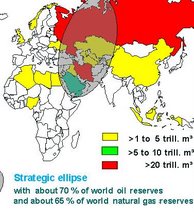
TEHRAN – Iran and Pakistan have resolved all issues concerning the long-pending Iran-Pakistan-India pipeline project (dubbed peace pipeline) and both the countries are likely to sign a deal soon, Pakistan Petroleum Minister Naveed Qamar said.
Talking to media persons in Islamabad, he added that the Pak-Iran gas pipeline project has been finalized and an accord is likely to be inked in this regard next week, the Islamic Republic of Iran News Network reported.
The IPI project was conceived in 1995 and after almost 13 years India finally decided to quit the project in 2008.
The Pakistani official said Islamabad and Tehran are posed to sign an accord for the construction of a pipeline next week. The proposed pipeline is 2,775 km long and dubbed as the Peace Pipeline, connecting Iran-Pakistan and India. However, for the time being India is reluctant to join the contract because of New Delhi’s concerns over its safety and some unresolved border issues with Pakistan. The negotiations have been going on for many years involving Iran, Pakistan and India. Iran’s enormous gas reserves are ideally suited to supply massive amounts of gas to both Pakistan and India on long-term basis, thus helping ease the energy requirements of the two giant developing nations. Iran holds world’s second-largest gas reserves after Russia.
India was also a part of the proposed Iran-Pakistan-India (IPI) pipeline, but walked out of the 2,775 km pipeline project mainly due to the hefty transit fee demanded by Islamabad.
Also the United States as an outside player, fearing further economic developments of India and Pakistan, has been working round the clock by using all possible means to prevent the deal to become a reality.
Experts believe from the Western point of view, any additional progress alongside the remarkable developments in East Asia, especially China would be a direct threat to Western global hegemony.
India and Pakistan with a combined population of nearly 1.5 billion could become the next Asian powerhouses only if they could have better access to inexpensive and long-term energy sources such as the natural gas.






























